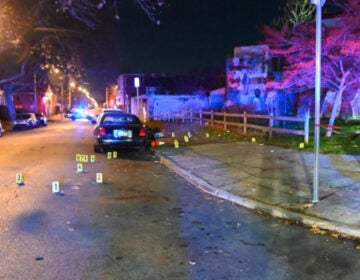Gay priest: Chestnut Hill College’s statement rife with errors
Father Jim St. George received a rude awakening when he opened his mail last week: A letter stated he would not be returning to teach as an adjunct religion professor at Chestnut Hill College.
Even more surprising than his contract not being renewed was that school officials would not return phone calls asking for an explanation. It wasn’t until school President Sister Carol Jean Vale released a statement about the situation on Friday, Feb 25, that St. George got that explanation: he had been dismissed because his lifestyle as an openly gay priest did not adhere to the Roman Catholic standards that Chestnut Hill College abides by.
Standing by the statement
Chestnut Hill is not offering any more information on St. George’s dismissal. “I can’t answer any questions about that,” said Kathleen Spigelmyer, director of Communications for the college. She said that the statement on the college’s website was the only information being offered currently.
The statement said: “At the time St. George joined our faculty, he presented himself as Father St. George and openly wore a traditional Catholic priest’s collar. While St. George appears to be an ordained pastor—he leads St. Miriam, an independent and self-described reformed Antioch-rite Catholic house of worship located in Blue Bell, Pa.–his church allows priests the option to engage in same-sex partnerships. This is contrary to the teaching of the Roman Catholic Church.”
Not the way he sees it
St. George said that the statement is rife with errors. For example St. George said that he never referred to himself as anything besides Jim and Father Jim, and that his parish, St. Miriam, is an Old Catholic Apostolic Church of America. not a “reformed Antioch-rite Catholic house of worship.” As such, St. Miriam allows for priests that are gay, straight, male, female, married and celibate.
St. George also expressed doubt that the college is only just finding out about his parish now, since it was Chestnut Hill that asked him to take a faculty position at the suggestion of some of his parishioners who also work at the college. “They called me and asked me to teach there,” he said. “You would just assume that they know everything about you if they call you. Obviously they know what parish I’m affiliated with.”
The statement also says that the college found out about St. George’s sexual orientation through statements made in his blog. St. George claimed there is no evidence of it in his blog. “My blog isn’t about me,” he said. “It’s more focused on the world, the way I view the world.”
That’s not to say that he tried to hide his sexual identity. “I am many things. I just happen to be gay and in a long-term relationship. It doesn’t fundamentally change me,’ he said. “Everyone in my parish knows.”
How we got here
According to St. George, the school began to view his lifestyle as a problem only after James Pepper, a lawyer in Blue Bell, wrote and distributed a letter to Cardinal Justin Rigali, two school officials including Vale, and Daily News Writer Ronnie Polaneczky. Polaneczky had written about St. George’s parish in her column that day.
It was only a few days after this letter was received by school officials that St. George received the letter in the mail that informed him that his services were no longer needed at Chestnut Hill College. The school maintains that the decision not to renew his contract was not as a result of Pepper’s email.
As to why Pepper sent the letter, St. George denies any knowledge of motivation. “I have never met James Pepper,” he said. “I can’t even fathom why anyone would do that.” In his letter, Pepper described St. George as a “heretic” and the fact that he was allowed to teach at Chestnut Hill was “scandalous.”
Legal options?
At the moment, St. George and his attorneys are weighing their legal options. “We’ve thought about (legal action), we’ve talked about (it),” he said. “We’re no where close to that today.”
St. George said that he believed he might have a case because there was never any indication throughout the hiring process that he needed to be Roman Catholic.
“It wasn’t in the contract,” he said. “It wasn’t verbally stated.” He said that there are many other staff and faculty members who do not adhere to Roman Catholic doctrine.
Working as an adjunct at Chestnut Hill was not his only means of income. St. George still teaches at his parish, where he acts as pastor, teaches online courses, and acts as a chaplain. However, he thinks that legal action could set a positive precedent for those that follow him.
In the end, St. George just wants life to go back to normal. “I’m just a parish priest,” he said. “I didn’t ask for any of this.”
WHYY is your source for fact-based, in-depth journalism and information. As a nonprofit organization, we rely on financial support from readers like you. Please give today.




